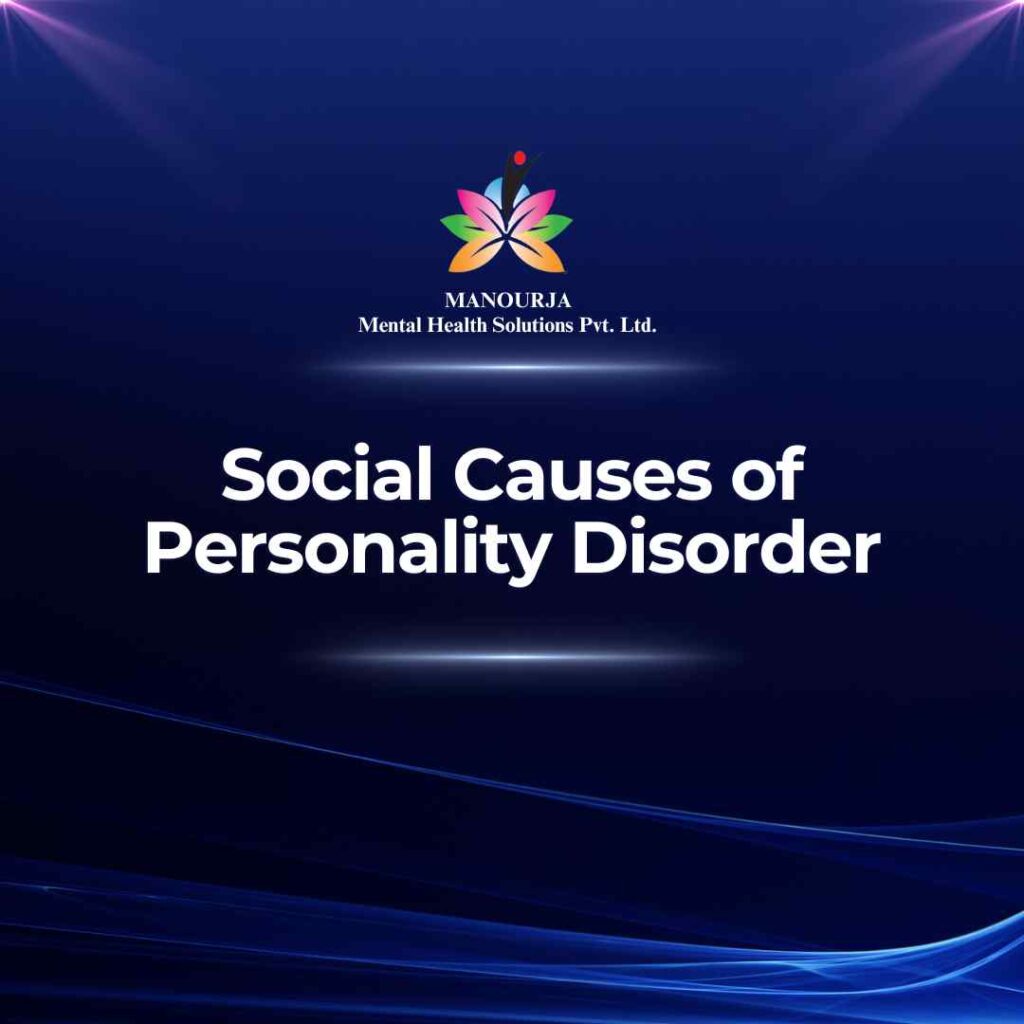Social Causes of Personality Disorder

Social causes of personality disorders refer to the influences arising from an individual’s social environment that contribute to the development and perpetuation of maladaptive personality traits. These causes are complex and multifactorial, often intertwined with psychological and biological factors.
Here’s an exploration of several key social causes that have been identified as contributing to the development of personality disorders:
Family Dynamics
- Parenting Styles: Overly harsh, neglectful, or permissive parenting can contribute to the development of personality disorders. For instance, narcissistic personality disorder may develop as a response to excessive pampering or high expectations, whereas borderline personality disorder might arise from emotional neglect or abuse.
- Dysfunctional Family Environment: Growing up in a family environment marked by high levels of conflict, instability, or absence of healthy role models can lead to difficulties in forming a stable sense of self and in managing relationships.
Early Childhood Experiences
- Trauma and Abuse: Exposure to trauma and abuse in childhood is a significant social risk factor, impacting an individual’s ability to regulate emotions and interact with others in healthy ways.
- Bullying: Experiences of bullying can contribute to feelings of inadequacy, low self-esteem, and distrust of others, potentially leading to features seen in avoidant or paranoid personality disorders.
Peer Relationships
- Social Isolation or Rejection: Being socially isolated or frequently rejected by peers during formative years can influence personality development, possibly leading to avoidant or schizoid personality disorders.
- Peer Influence: Influences from peer groups, especially during adolescence, can also shape personality traits. For example, associations with delinquent peers are linked with the development of antisocial behaviors.
Cultural and Societal Expectations
- Cultural Norms and Values: The broader cultural context can play a role in personality development. For instance, highly individualistic or competitive societies may encourage traits that align with narcissistic tendencies, while collectivist cultures might suppress expression of personal desires, possibly contributing to dependent or avoidant behaviors.
- Stigma and Discrimination: Experiencing stigma, discrimination, or marginalization because of race, sexuality, gender, or socioeconomic status can impact self-esteem and interpersonal functioning, influencing the development of personality disorders.
Educational Environment
- Academic Pressure: Intense academic pressures can lead to stress and anxiety, which may exacerbate underlying personality issues or contribute to the development of new symptoms, such as obsessive-compulsive traits in obsessive-compulsive personality disorder.
- Schooling Experience: Negative schooling experiences, such as harsh discipline or lack of supportive mentoring, can affect personality development.
- Economic Factors
- Poverty: Growing up in poverty can lead to chronic stress, limited access to healthcare, and fewer educational opportunities, all of which can affect mental health and personality development.
- Economic Instability: Financial insecurity or growing up in economically unstable environments can lead to anxiety, stress, and behaviors associated with various personality disorders.
Understanding the social causes of personality disorders can help in designing more effective interventions that consider not only the individual but also their broader social context. Interventions might include family therapy, community-based programs, and social skills training, aimed at improving interpersonal relationships and building a supportive social network.
At MANOURJA, we believe in the transformative power of counseling. Our experienced therapists offer a safe and supportive space where you can explore your thoughts, emotions, and challenges. Through personalized counselling sessions, we’ll work together to develop coping strategies, build resilience, and achieve lasting positive change. Discover the path to a healthier, happier you with MANOURJA counselling services.
MANOURJA Rehabilitation Services
At MANOURJA, we’re dedicated to helping you in rebuild your life, after difficult times. Our rehabilitation services focus on understanding what you need to move forward, whether you’re recovering from addiction, trauma, or any psychological – social challenges. We create personalized plans, that are all about helping you, regain your strength and find hope again. With a caring team by your side, you’ll have the support to make real progress and take steps toward a brighter, healthier future
